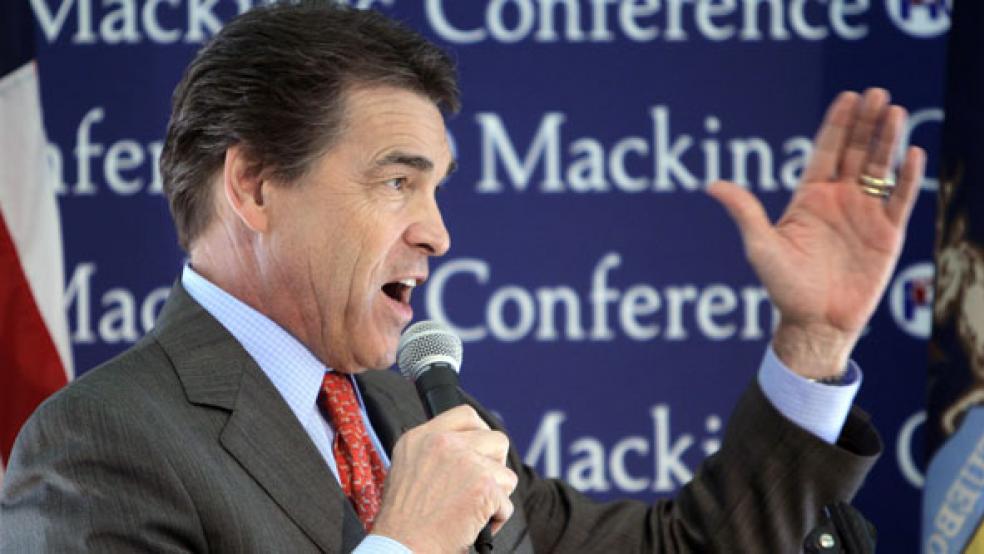It’s tough luck for Texas Gov. Rick Perry: While the rest of the likely GOP presidential candidates are hitting the campaign trail next year, Perry may be standing trial in Austin on government corruption felony charges.
A Texas judge on Tuesday refused to toss out on technical grounds two criminal felony indictments charging Perry with abuse of official power and coercion of a public servant. This means that, at least for now, a nettlesome critical case – one that potentially carries jail time if he’s convicted – will hang over the longtime governor while he deliberates whether or not to make a second bid for the Republican presidential nomination in 2016
Related: Trumped Up or Not, Rick Perry’s Indictment Could Derail Him
Perry, who is trying to revive his presidential prospects after a disastrous run in 2012, including his notorious “oops” statement – has dismissed the two indictments as a politically motivated stunt that will fall apart under court scrutiny.
WHY THIS MATTERS
While the two felony indictments filed against Gov. Rick Perry last summer for official abuse of office obviously put a damper on his renewed presidential ambitions, don’t count him out. The hard-charging politician has stressed that he’s able to multi-task “pretty good” – and that he could balance another bid for the GOP presidential nomination with a grueling court schedule.
Instead of running from the indictments, Perry has embraced them as a badge of honor as he tries to drum up support within his party’s conservative base. With many conservatives, including Sen. Ted Cruz of Texas, and even some Democrats agreeing that the indictments are dubious, Perry has begun to rekindle interest among voters in a few battleground states.
The indictments last August caught many by surprise. The charge of abuse of official capacity stems from Perry’s threat to veto funding for the Travis County District Attorney office’s Public Integrity Unit unless Democratic District Attorney Rosemary Lehmberg agreed to resign.
Perry contended she had disgraced the office after being arrested and convicted of drunk driving. When Lehmberg refused to step down, Perry vetoed the $7.5 million in funding for the Public Integrity Unit. A political watchdog group, Texans for Public Justice, filed an ethics complaint against Perry and a special prosecutor convened a grand jury that ultimately handed down the indictments. The same watchdog group went after DeLay and obtained indictments.
The governor’s defense team attempted to have the case dismissed on technical grounds, arguing that special prosecutor Michael McCrum was not properly sworn in and that some paperwork had not been correctly filed. The lawyers have also tried to garner a dismissal by arguing against the indictment on constitutional grounds.
Related: Rick Perry Calls for More U.S. Troops, Airstrikes Against ISIS
But District Judge Bert Richardson, a Republican, ruled in favor of the prosecution. Richardson concluded that because the two sides didn't dispute that McCrum did in fact take the oath of office, the lack of McCrum’s signature on the paperwork doesn't invalidate his pledge. ”It is the act of swearing, not the signature itself, that is essential,” the judge’s ruling stated.
Perry made his first court appearance on November 6 – two days after the midterm elections – and said afterwards he’s done nothing wrong. “I stand behind my authority and I would do it again,” he said. “I stand behind that veto, and I would make that veto again.”
Top Reads from The Fiscal Times:
- Why America Voted Against Obama’s Economy
- Romney and GOP Want ‘Boots on the Ground’ to Fight ISIS
- Gruber Proves Obamacare Was Built by Elites for “Stupid People”





